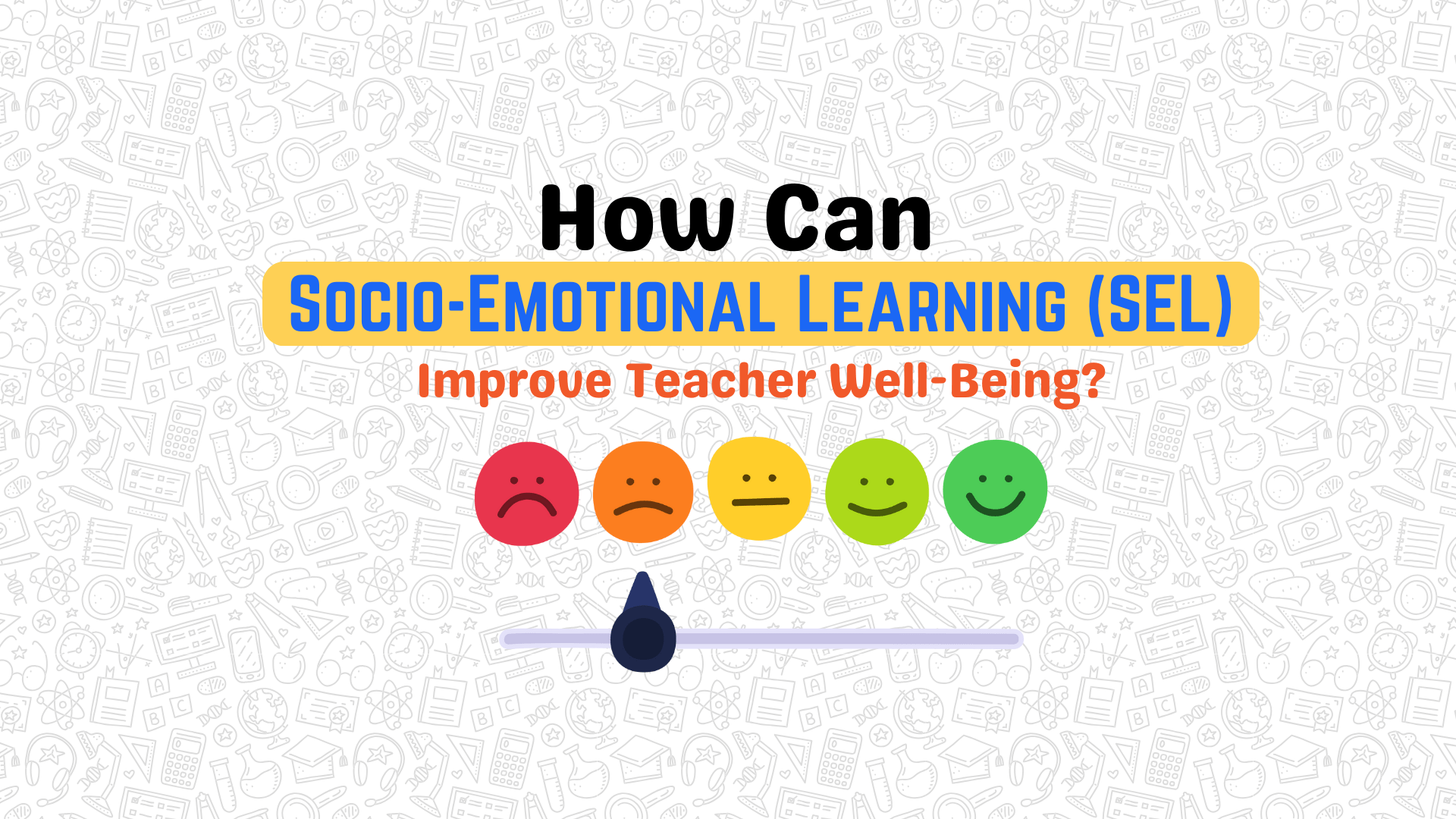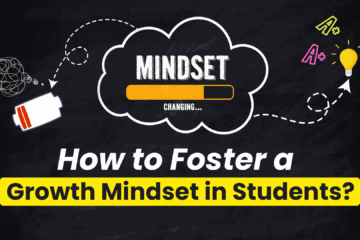Teachers frequently overlook their socio-emotional learning. But why?
Teachers are often seen as the backbone of the education system, responsible for imparting knowledge, shaping young minds, and fostering a positive learning environment.
However, one critical aspect of their professional lives that tends to get overlooked is the need for Socio-Emotional Learning (SEL).
While SEL is commonly discussed concerning students, it’s equally important for teacher well-being. In fact, many teachers face socio-emotional challenges in their daily lives, which can impact both their personal well-being and professional effectiveness.
In this blog, we will explore some of the common socio-emotional issues teachers encounter and provide practical solutions to help them navigate these challenges.
Challenge 1: Emotional Exhaustion and Burnout
Teaching is one of the most emotionally taxing professions.
Teachers often have to manage a classroom full of students with diverse needs, deal with high levels of scrutiny from administration, parents, and their peers, and work long hours preparing lessons and grading assignments.
This can lead to teacher burnout and emotional exhaustion, which can reduce their effectiveness in the classroom and even lead to health problems.
Solution: Self-Care and Mindfulness Practices
One of the best ways for teachers to combat burnout is to practice self-care and mindfulness in teaching.
Taking short breaks during the day, practicing deep breathing exercises, and engaging in activities that bring joy and relaxation outside of work are essential.
Mindfulness exercises such as meditation can help teachers stay grounded and build emotional resilience.
Additionally, there are platforms that offer mindfulness programs tailored specifically for educators.
Headspace for Educators, for example, offers free trial access to mindfulness tools and exercises to help teachers manage stress and stay focused.
Challenge 2: Difficulty Managing Student Behavior
Teachers often face challenges when managing student behavior in the classroom. Dealing with disruptive or unengaged students can be frustrating and emotionally draining.
If a teacher struggles to control the class, it can lead to anxiety, frustration, and even a sense of failure in maintaining classroom management.
Solution: Positive Behavior Reinforcement and SEL Integration
Instead of focusing solely on punishment, many teachers have found success in implementing positive behavior reinforcement.
Rewarding good behavior and encouraging students to be responsible for their actions can make a significant difference.
Integrating Socio-Emotional Learning (SEL) activities into lessons can also help improve student-teacher relationships and support students in developing emotional intelligence, leading to improved behavior.
Many platforms provide SEL training that can help teachers manage classroom behavior more effectively.
Second Step offers professional development programs on SEL that help teachers foster a more emotionally aware classroom environment.
Challenge 3: Lack of Emotional Support from Administration
Teachers often feel like they are left to navigate their challenges on their own, without proper emotional or mental health support from school administration.
This can create a sense of isolation and negatively affect the teacher’s well-being.
Solution: Building a Supportive School Culture
Creating a school environment where teachers feel supported and valued is the key to addressing this issue.
Teachers need to feel like they can speak openly about their emotional and mental health challenges without fear of being judged or penalized.
Administrators can foster a positive school culture by encouraging regular check-ins, offering mental health resources, and recognizing teacher’s hard work.
For teachers, participating in teacher support groups or professional learning communities (PLCs) can also help reduce feelings of isolation. Platforms like The Educators Guild of India provide an excellent space for teachers to connect, share experiences, and support each other.
Challenge 4: Compassion Fatigue
Teachers are naturally empathetic people who want the best for their students. However, constantly dealing with student’s problems, whether academic or personal, can lead to compassion fatigue.
Teachers may feel emotionally drained from caring so much, making it difficult to maintain their energy and enthusiasm.
Solution: Setting Boundaries and Seeking Professional Help
Setting emotional boundaries is essential for teachers to protect themselves from compassion fatigue. This means knowing when to step back and not becoming too emotionally involved in every student’s issue.
Teachers can also seek support through professional counseling or peer groups designed for educators.
Counseling services specifically for educators, such as those offered by BetterHelp, provide teachers with an outlet to discuss their struggles with a licensed therapist.
Challenge 5: Difficulty Balancing Professional and Personal Life
The demands of teaching can often spill over into a teacher’s personal life, leading to an unhealthy work-life balance.
Many teachers spend hours after school grading assignments or planning lessons, leaving little time for rest, hobbies, or family.
Solution: Time Management and Delegation
To address this issue, teachers need to develop effective time management skills. Prioritizing tasks, setting clear boundaries for work hours, and learning to delegate responsibilities where possible can help.
Additionally, utilizing teaching tools that streamline lesson planning and grading can reduce the time spent on these tasks.
Platforms like Planbook and Google Classroom provide easy-to-use tools that help teachers manage lesson planning, assignments, and grading more efficiently. These platforms allow teachers to organize their work better and reclaim their personal time.
Challenge 6: Anxiety About Student Performance
Teachers often feel pressure when their students underperform. This anxiety can come from internal expectations, pressure from school administration, or even concerns about how parents will react to poor student performance.
Over time, this stress can affect teacher’s emotional well-being and interpersonal communication with students and parents.
Solution: Focus on Growth and Set Realistic Expectations
One way to manage this anxiety is to shift focus from student outcomes to student growth. Teachers need to set realistic goals and recognize that not all students will achieve success at the same pace.
Teachers can lessen the pressure they feel by focusing on gradual progress and fostering a growth mindset in their students.
Teachers can also benefit from professional development workshops that emphasize this mindset. Mindset Works provides training on how to build a growth-oriented classroom culture.
Wrap Up
Socio-Emotional Learning (SEL) is not just for students—teachers also need to prioritize their own emotional well-being.
By recognizing and addressing their socio-emotional challenges, teachers can improve their mental health, reduce stress, and become even more effective in the classroom.
Whether it’s practicing mindfulness, building a support system, or learning to manage their time better, the right tools and strategies can help teachers thrive both professionally and personally.





